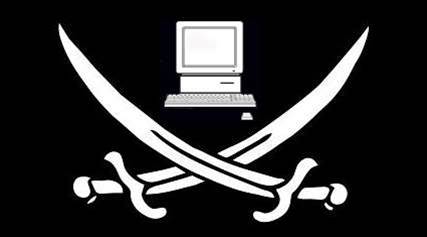The UK Government has proposed that rights holders bear 75 percent of the cost of operating its incoming anti-piracy code that was legislated earlier this year under the Digital Economy Act.

It decided that the remainder of the costs should fall on internet service providers (ISPs, a move condemned by the internet industry body and ISPs alike.
The proposed scheme would compel ISPs to send notifications to customers that identified users alleged to have infringed copyrighted material.
The costs of implementing the scheme included the notifications process and an appeals mechanism that would be overseen by the UK's communications regulator, Ofcom.
Rights holders' pursuit of a 50:50 split of the costs with ISPs was rejected by the UK Department for Business, Innovation and Skills (BIS), which led the government's response.
Rights holders had lobbied BIS to include their infringement detection costs in calculations.
But the BIS settled on a lower 25 percent cost for ISPs to give them a "real incentive to ensure they adopt the most effective and efficient process" when acting upon infringement notices.
It recommended that consumers face no cost if they appealed a case brought against them, but that the Government have the right to impose fees should it face "vexatious appeals".
Communications regulator Ofcom has until March 2011 to implement the code.
The cost split did not please the internet industry.
Andrew Heaney, regulations officer for UK ISP TalkTalk Group, described the cost proposal as "outrageous" and said that customers would ultimately pay.
"In effect, ISPs and their customers will be forced to pay for the costs of the music and film industries to enforce their own copyright," he wrote in a response.
"To us this is manifestly unfair. It is the rights holders' material; if they think it is being accessed illegally, it is only right that they should be the ones to pay for protecting it."
The UK ISP Association's secretary general Nicholas Lansman said it was disappointed with the result.
"Full cost recovery for serious law enforcement cases is an established rule and ISPA sees no reason why it should not be the case here," he said.
The UK's incumbent carrier BT and TalkTalk will seek a judicial review of the legislation, according to a BBC report.
Australia's communications minister Stephen Conroy had shown interest in the UK's legislation, but to date his advances to the internet industry on the issue have been rebuffed.



.png&h=140&w=231&c=1&s=0)





_(26).jpg&w=100&c=1&s=0)

 iTnews Executive Retreat - Security Leaders Edition
iTnews Executive Retreat - Security Leaders Edition












_(1).jpg&h=140&w=231&c=1&s=0)



